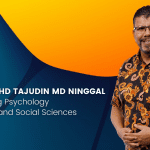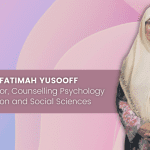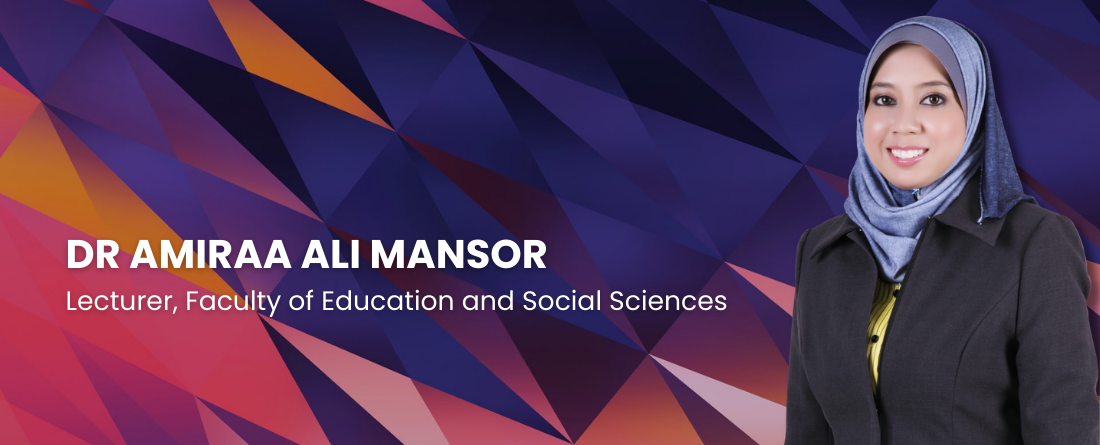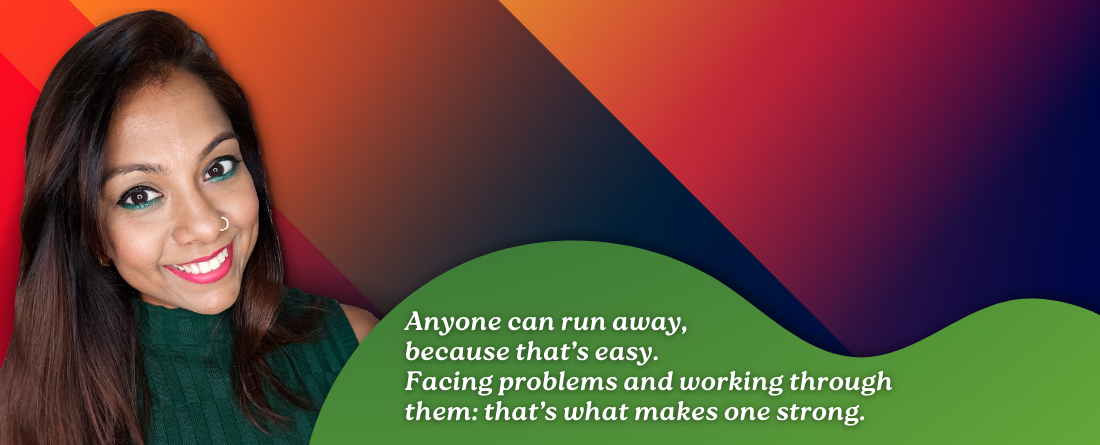Tell us a little about yourself.
I am 36 and the youngest of three girls. One of my sisters works in the oil and gas industry, while the other is a medical doctor. Both my parents have a background in communication.
Walk us through your career background. How long have you been an academic?
I began my career as a Human Resource Executive (Training Division) in a government-linked company right after graduating with a Bachelor’s degree in psychology.
Apart from the fact that I have a family member who is a professor and has always encouraged me to pursue a career as a lecturer, I realised I have a strong passion for knowledge-sharing. For these reasons, I decided to pursue a Master’s degree in psychology at a local university, while at the same time working as a part-time lecturer at a local college.
Following the completion of my Master’s degree, I began working as a lecturer at another local university, where I stayed for ten years before joining OUM while I was wrapping up my PhD.
What courses do you teach at OUM?
I teach psychology courses. Among them are Health Psychology, Cognitive Psychology, Social Psychology, and other courses in the psychology programme.
Tell us more about your PhD and thesis.
I did my PhD in social psychology, focusing on health psychology. My research focused on the application of the Biopsychosocial Model and Social Cognitive Theory to determine body weight status factors among university students in the Klang Valley. My research was driven by the alarming state of obesity in Malaysia, which has reached epidemic proportions in the population.
Consequently, my research may provide psychological evidence and perspectives that can help to improve the collective response to obesity.
What was it like to do a PhD?
Doing a PhD is never easy. My journey taught me a lot of valuable life lessons, as it can be intellectually taxing, physically exhausting, and emotionally draining. I struggled a great deal, juggling studies and work demands, not to mention suffering sleepless nights. Apart from that, I faced numerous challenges, one of which was the sudden passing of my beloved mother. Alhamdulillah, I had strong social support from my family and supervisor, who encouraged and supported me throughout my PhD. Despite all the challenges I experienced, the journey has enabled me to be wiser and more disciplined in many ways.
How does this latest qualification benefit your career as an academic and OUM in general?
To remain in academia, a PhD qualification is necessary. Completing a PhD is a huge accomplishment that provides a lot of satisfaction. A PhD opens doors to career opportunities that otherwise would not be possible. One example of this is securing a prestigious research grant. Hence, with this qualification, I hope to contribute more to OUM’s growth and success through teaching, research, publication, and supervision.
Is there anything else on your horizon?
I hope to become a professor and an expert in psychology. I believe that sharing my knowledge can have a significant impact on others. It has the potential to instil in people a desire to do well and succeed in life.
I would also like to take this opportunity to express my appreciation and gratitude to OUM, particularly President/Vice Chancellor Assoc Prof Dr Ahmad Izanee Awang, Vice President (Academic) Prof Dr Widad Othman, and Dean of Faculty of Education and Social Sciences, Dr Aliza Ali for the opportunity to serve.
I am looking forward to contributing my knowledge, experience, and skills to the ongoing growth success of OUM, which has built a solid reputation for itself over the years.
By Izyan Diyana Merzuki









